Culturing Creativity: Exploding a Moment
On this culturing creativity episode of Dear Writer we tried out and discussed a writing exercise called, “Exploding A Moment”. This wonderful exercise helps with developing detailed description in your creative writing. You can find instructions on how to do this exercise by clicking here.
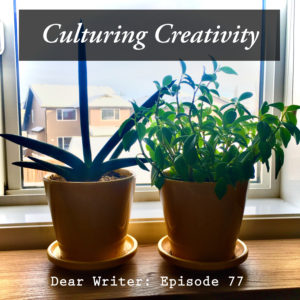
Episode Summary:
Main Discussion: Exploding a Moment
What is the exercise about?
Sarah: One of the biggest things new writers face is giving the readers enough detail and honing in on the specifics in a scene to bring a scene to life. This exercise, ‘Exploding a Moment’ helps with developing detailed descriptions, and so we wanted to try it out to see how it worked. The authors of this technique described the use of this technique: “This revision technique is especially helpful in eliciting rich details. It’s almost like writing in slow motion–slowing down the moment–to capitalize on sights, thoughts, feelings, and more.”
Ashley: You can find a detailed description of how to complete the exercise by following the link in the episode show notes. But, basically the premise behind it is to take a bland sentence that is lacking details and ‘exploding’ it to create a more interesting story. This is done by creating new sentences from the original sentence that are more specific and rich in detail. We tried this twice, the first time by selecting a sentence from the given example (which we will read out shortly). And the second time by using a sentence from one of our own drafts.
Have we tried this exercise before/heard of it before?
Ashley: Not specifically with this in mind. I do prefer to tease out scenes with detail, etc when I’m writing. The opposite of Sarah haha. I really try and pace chapters and draw out details. I’m looking forward to trying out this exercise with my mind specifically focussed on achieving that.
Sarah: Informally when editing I do it, but I wouldn’t say it’s a skill I’ve purposefully practiced. I am aware that it’s actually one of my flaws as a writer though—in my first drafts I’m often guilty of rushing through the chapter plans, and I don’t ‘explode’ enough scenes, so they can feel fast paced and sometimes a little dry of detail. So, I was really excited to try this exercise in a more formalised way and see how it worked.
The authors of the exercise gave a bland paragraph for writers to select a sentence from: “I woke up late this morning–as usual. I had no clean clothes and the fridge was next to bare. Traffic was heavy as I sped to work. Some jerk cut me off and I almost had a wreck. At work I went to my desk and there was a note to go and see the boss. I waited outside her office for a while before she called me in. I couldn’t figure out why she wanted to see me. I went inside and sat down. My boss handed me an envelope. She told me that my services were no longer needed and that I was free to go. I got my belongings from my desk and left. The drive home was quick. I am now unemployed.” We will now each read the sentence we selected and the short paragraph we created by ‘exploding’ the sentence.
Ashley: “I had no clean clothes and the fridge was next to bare.”
I stumbled out of my bedroom, making a beeline to the fridge. My fingers fumbled with the buttons of the same shirt I wore yesterday. Blue pinstripe— generic enough that no one would notice me wearing it two days in a row.
I pulled the door to the fridge open, and the light flickered on, illuminating the jar of mayonnaise, alone on the top shelf. Probably the only edible thing in here, I thought. My eyes roved from the tub of yoghurt a couple weeks past the expiry date pushed to the back to a bag of apples soaking in their own brown juices. Sickly sweet and mushy.
There was still milk, though. I shuffled forward and grabbed the plastic jug of milk from the door. Holding it up, I gave it a hopeful swirl and sighed. It looked like I’d be having my coffee black today. I tossed the curdled milk into the rubbish bin, no way in hell was I opening it up to tip it down the sink. The mere thought of the smell trapped in that plastic-milk-jug-prison made me turn up my nose.
Sarah: I used the sentence, “My boss handed me an envelope.”
Wendy sat back in her winged chair, her hands curled around the leather armrests and her shoulders relaxed, which had the effect of making her swan-like neck appear even more elongated than usual. She tilted her head down to look at me as I sat uncomfortably in the stubby office chair, which was a good few inches shorter than hers. I started picking at the threads, wrinkling my nose at the faint smell of mothballs exuding from my seat. They probably took it straight from storage. She hated having anyone in her office. Which meant I was definitely in the shit.
With a sudden movement that made me start, Wendy snapped open the desk draw and her thin long fingers withdrew an envelope. She tossed it across the desk.
“Go on then. Open it,” she encouraged, a small smirk pulling the corner of her mouth.
With shaking hands, I picked up the envelope. It was plain, except for the company logo and address stamped artfully onto the back. She had addressed it by hand, a menacing flick to every letter of my name. Eleanor.
“Go on,” Wendy said again. She pushed an envelope opener toward me. I ignored it and tore through the seal with my fingers.
Using our own drafts, we each exploded a single sentence. What draft did we use, what was the sentence we select, and what was the result?
Ashley: I took the sentence “By the time he neared Levadia, the sun was rising but there was no time to stop.” I basically wet through some of my recently written ancient Greece chapters to find a sentence that might be appropriate for this exercise. For context, Simon is travelling across country on horseback.
Simon was used to his horse’s rhythm, lulling him into half-slumber to pass the rest of the night. The soothing repetition of hooves scuffing on the dirt path. His horse’s reassuring breathing. But Simon’s comfortable rhythm was disturbed by the chirruping of birds accompanying the arrival of dawn. Simon blinked away his sleepiness and looked east to the rugged mountains jutting up into the sky. Steaks of light spilled over the jagged cliffs, casting Simon and his horse into shadow.
“Morning,” Simon muttered to his horse, giving it a fond stroke. With the coming light, Simon could see a city in the distance. It was well fortified, like most cities Simon had seen. He would have liked to go in and find some breakfast in the marketplace. But Simon quickly realised that this wasn’t Orchomenus. It was Levadia.
Simon groaned. That meant he was still hours from his destination.
“We better pick up the pace,” Simon said to his horse, giving it a nudge forward. Orchomenus and Lysander beckoned.
Sarah: I chose to take a sentence from The Price of Pandemonium which I’ve currently got on my to-do list to edit. I had already found a sentence which I identified as needing explosion. For context, Levi and Dylan are on a mission to get some supplies. The sentence was, “The main road was open with only a little cover.” And this is the explosion:
The road sprawled out in front of us, long and straight, stretching into eternity. Heat waves shimmered above it, and our shoes stuck against melted patches of black tar. On the fringes, palm trees were spaced about every fifty metres, but neither they nor the spindly lampposts offered any cover. Like Tauranga, it was now a ghost town. But I couldn’t shake the feeling that there were eyes following us.
“I don’t like this.” Levi whispered to me, his gun held at the ready. “It’s not good being in the open. Let’s get closer to those houses.” He nodded towards the dingy bungalows that were set back from the main road.
How did we each find the exercise?
Ashley: I found it quite helpful. I like the idea of making a targeted effort to expand sentences and actually seeking them out. I don’t usually look for spots where I can do this. So it was interesting for me to go through and actively seek sentences to explode. I enjoyed expanding on the sentences in the example provided as it gave me something a bit different to work on. For me, my only caution would be making sure I don’t use this too much in writing. My chapters are almost always really long and I need to be careful not to do this too often.
Sarah: I found it immensely helpful. Just the idea of sitting down and thinking, ok. How can I make this interesting? What else is going on in this scene? What is the character seeing? These were all questions that was running through my mind as I was exploding the sentences. The only thing I would say is it was extremely tempting to me to start exploding the other sentences around it at the same time. For example, in the first one I realized I probably started a bit early and really almost exploded two sentences—the sentences “I went inside and sat down. My boss handed me an envelope.” I was supposed to be just doing the sentence about the envelope and really I started with the sitting down part of it! Likewise, with the one I exploded in our draft, Though I started by describing the scene, I then bled into editing the next sentence which has really been replaced by the new paragraph that was written (It originally read “The main road was open with only a little cover. We hurried down it with our guns at the ready.”).
How do we think this exercise helps creativity?
Ashley: It makes you more aware of your writing which can be really helpful for editing and also understanding how you work as a writer. It’s also a really good way to make you think more deeply about a scene and how to colour it more vividly for the reader.
Sarah: I think it’s pretty clear that it helps creativity especially with writers! But in particular I would say this exercise helps to really get you thinking about what other small things are noticeable, even when it seems like there’s not that much going on. Obviously, you need to find a balance as if you described every single thing in really rich detail, the pace of the book is going to slow down substantially. But it can be helpful to bring in colour and vividness to those scenes that feel flat and feel like they’re lacking something.









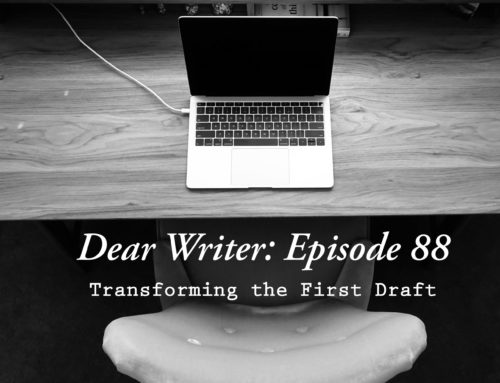
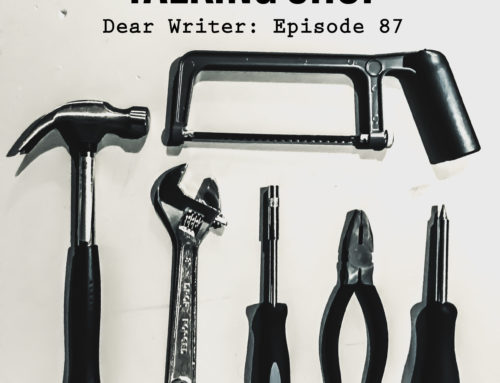

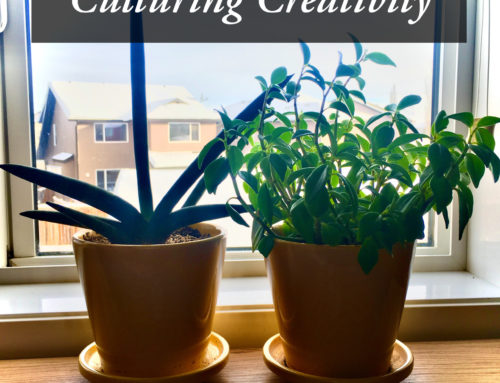

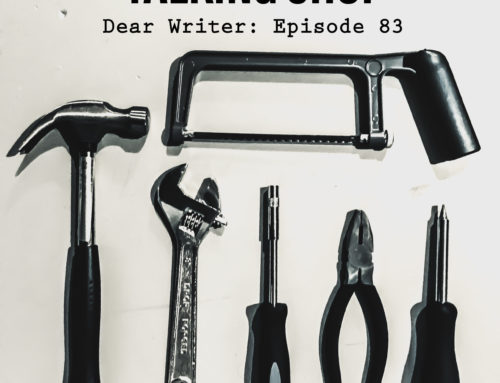


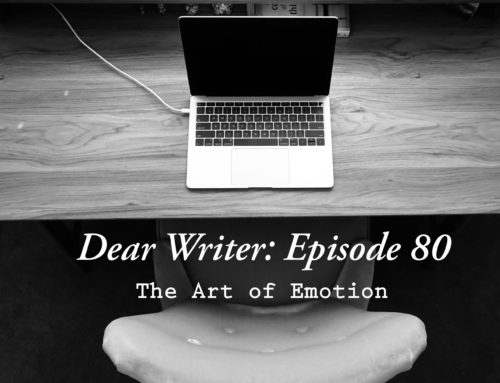
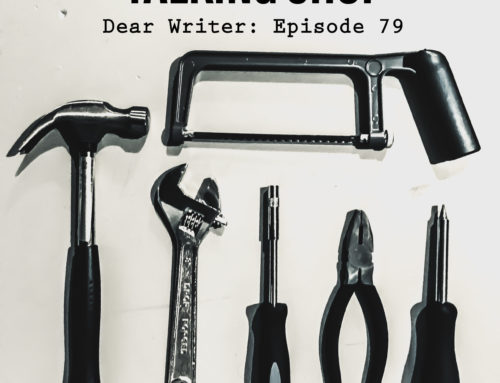
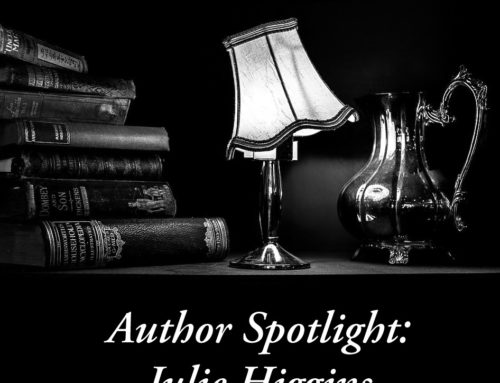
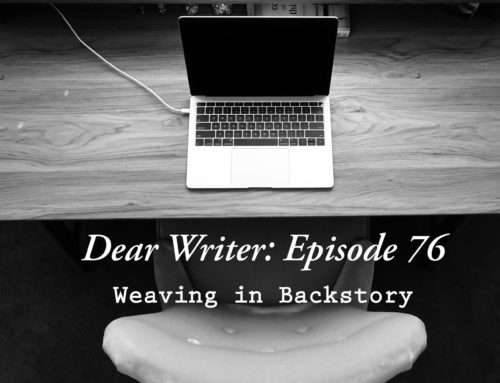
Leave A Comment